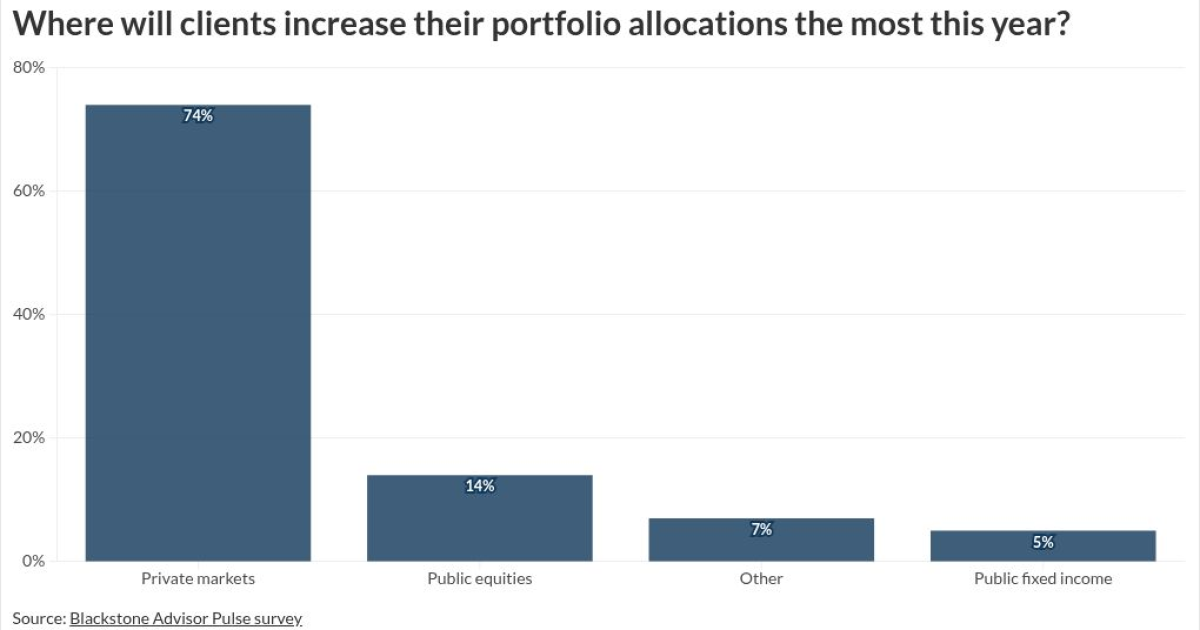Trying to avoid behavioral mistakes and choosing between active and passive funds have become so familiar to financial advisors and clients that they may be missing some nuances.
The advantages of passive vehicles over active strategies vary by category, and investor errors don’t alone explain why their yield lags that of their investments, according to two studies issued last month by independent investment research firm Morningstar that tracked active versus passive funds and the gap between total and actual returns. The charts and key findings below illustrate that layer of subtlety that lurks beneath the studies’ well-established findings.
Differences between active and passive strategies and the importance of steering clear of common investment flubs are so integral to the planning process at New York-based registered investment advisory firm Re-Envision Wealth that the firm educates clients about them early on in the relationship, according to Will Gholston, a chartered financial analyst and certified financial planner who is the firm’s vice president of investments.
“The first meeting that we have centers primarily around their ability to overcome their behavioral biases in generating their desired outcomes,” Gholston said. “We always say that our greatest value-add is our ability to help you overcome your human tendencies, your behavioral biases, and, most importantly, to avoid what we call the big mistake.”
READ MORE: Online search interest in advisors sets record, reveals investor fear
Is return the only factor?
That ‘big mistake’ Gholston referred to is every investor’s fear: buying at a high price and selling at a low one. But believing that genius portfolio managers can actively produce excess returns above their benchmarks and fees might be another one.
Readers of investing classics like “A Random Walk Down Wall Street,” and anyone following the stock market, know that those true fund gurus are rare and quite pricey. But that doesn’t mean that active investments are going away. The success rate of active managers outperforming passive funds varies significantly depending on the investment category, as seen in Morningstar’s breakdown by fund type. And the returns of some, but not all, private investments surpass passive vehicles after the impact of their fees, Gholston noted.
Moreover, many clients of Re-Envision come to the firm with a goal of “aligning your values with your investments,” he said, citing principles such as ESG criteria and racial and gender equality.
“If that’s important to a client, we present a product to a client that incorporates those values,” he said. “That makes it a much more compelling proposition to clients and prospects, as opposed to just saying, ‘We want to go out there and beat a benchmark.'”
Regardless, planners like Gholston make a point of educating clients not only about behavioral bias but also about active and passive investing and how vehicles like index funds and ETFs efficiently allocate capital at an often lower cost.
“I managed retail funds in a past life for more than 10 years, and I know firsthand that it’s extremely difficult to beat a benchmark,” he said. “It’s difficult to beat that, especially when you have to layer on fees.”
READ MORE: Forget retirement buckets. Advisors prefer these withdrawal strategies
Scroll down the page to see the main takeaways for advisors from the Morningstar reports, “US Active/Passive Barometer: Mid-Year 2025” and “Mind the Gap US 2025.”
The subtleties of a familiar finding
An analysis of 9,204 funds with $24 trillion in assets that comprise 68% of U.S. holdings compared the excess returns of active strategies to a composite of passive peers.
The findings “help investors understand not just the odds of picking a successful manager, but also the prospective payout or penalty,” in order to enable clients and their advisors to “calibrate the odds of succeeding with active funds in different categories,” according to Morningstar authors Bryan Armour, Eugene Gorbatikov and Maciej Kowara.
Standout takeaways include:
In the 10-year span between July 2015 and June 2025, a paltry 21% of actively managed funds beat their passive composite. In terms of categories, though, real estate and bond products were the most likely to surpass their benchmarks, while U.S. large-cap strategies were least likely.The success rate of active ETFs and other funds versus passive counterparts fell by 14 percentage points year over year to 33% in the 12 months that ended in June.Just 31% of stock-picking funds outperformed passive strategies in that span, with 32% of large-cap managers, 30% of small-cap managers and 28% of mid-cap managers beating passive benchmarks.Only 31% of active bond products netted higher returns than passive fixed-income strategies, or half the share of the prior 12 months. At least 52% of intermediate core funds beat passive counterparts, but a mere 4% of active corporate bond managers outpaced passive funds.Active real estate strategies took a hit of 37 percentage points from their success rate for the 12 months that ended in June, but they have the highest one out of any category of investments over 10 years at 43%.During the 10-year span, 27% of active funds in the lowest-cost quintile of their category beat the benchmark, while only 15% of those in the most expensive quintile overtook passive peers.Passive, large-growth funds achieved the biggest gap over actively managed counterparts during that decade, to the tune of returns that were 2.3 percentage points higher on an annualized, asset-weighted average. That’s the largest disparity in any investment category.While only a quarter of active small-cap managers beat passive benchmarks over a decade, the small-growth active funds netted a 36% success rate for the highest share in any U.S. equity category.Active foreign stock managers outpaced their passive peers at a rate of 41% for the 12 months that ended in June, and their 24% success rate for the decade easily surpassed the 15% achieved by active U.S. stock funds.Bonds are still “a fertile hunting ground for active managers,” with 42% of them beating passive benchmarks over 10 years despite some struggles over the 12 months ending in June. “The reward for picking a successful active bond manager also outweighed the penalty of failure, based on positively skewed 10-year excess returns,” the authors wrote. “The value proposition for going active in fixed income remains strong, despite a rough 12 months for active bond managers.”
READ MORE: Here’s a financial advisor’s estimated value to clients
Sometimes it’s tracking error plus investor mistakes
Over the decade between 2015 and 2024, the average dollar deployed in U.S. mutual funds or ETFs raked in annualized returns of 7%, the “Mind the Gap” study found. But those funds themselves yielded 8.2% per year, which means there was a gap of 1.2%, or roughly 15% of their total returns, against those of their investors.
Key lessons from this year’s study by Morningstar authors Jeffrey Ptak, Amy Arnott, Nikhil Chidurala, Michael Manetta and Sandeep include:
For the first time, Morningstar compared the so-called tracking error of funds, which stems from the technical trading and operational difficulties of matching a benchmark to its exact returns, to an estimate of cash flow volatility as a proxy for trading activity. “Strikingly, we find that the more funds deviated from their index, or the more investors transacted, the wider the gaps between investor returns and total returns grew,” the authors wrote.”To be sure, inopportunely timed purchases and sales — buying high or selling low on impulse, for instance — can chip away at investor returns,” they said. “But even laudable practices like investing a portion of every paycheck or regularly rebalancing can open a gap between investor results and reported total returns. Given that nuance, it’s not advisable to view this study’s findings as a parable of ‘dumb money’ or evidence of individual investors’ fallibility.”The gap of 1.2% for 2024 was .1 percentage points higher than the prior year but lower than the 1.7% gap for the previous three years. “It’s advisable for investors to be deliberate about the necessity, timing, and nature of transactions, with a goal of keeping discretionary purchases and sales to a minimum,” the authors wrote. “Given that dollar-weighted returns have tended to lag funds’ total returns, it can also make sense to build a margin for error into the return forecasts one might incorporate as part of a spending and savings plan, slightly haircutting projections to give the effect of the return drags one might experience in the normal course of transacting over a longer horizon.”In terms of the categories of funds, sector equity products sustained the largest gap of 1.5% over the decade, followed by municipal bonds at 1.2%, international equity at 1.1% and taxable bonds at 1%. Allocation (0.1%), alternative investments (0.1%) and U.S. equity funds (0.6%) had the smallest gaps. “Investors have had more success capturing the total returns of all-in-one funds like allocation funds, of which target-date strategies are a popular type,” the authors wrote. “These funds automate routine tasks like asset allocation and rebalancing, obviating the need for investors to take these actions.”ETFs displayed a larger gap, at 1.7%, than the entire group of open-end funds at 1.2%. Within those figures, international equity (3.2%), allocation funds (2.5%), sector equity ETFs (2.1%) and taxable bond products (1.5%) had the biggest gaps. And U.S. equity funds (0.3%), municipal bond ETFs (1.1%) and alternative investments (1.4%) had the smallest gaps.”While ETFs have increasingly become the managed investment of choice thanks to their low cost, tax efficiency and ease of use, they still can be prone to misuse associated with overtransacting, negating some of the advantages they enjoy compared with standard open-end funds,” the authors wrote.Active funds displayed a 1.5% gap for the decade, which was higher than the 1.3% among products tied to indices.”This is a reminder that laudable practices like minimizing fees by allocating to lower-cost passive funds don’t necessarily translate to superior investor returns,” the report said. “In fact, there were larger investor return gaps for passive funds in the international equity and sector equity category groups. And while the gaps were similar in absolute terms between active and passive taxable-bond funds, passive bond investors captured a smaller share of the funds’ aggregate total returns.”


























